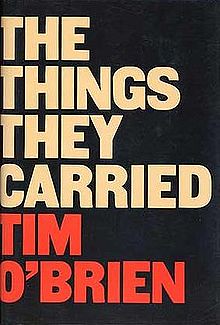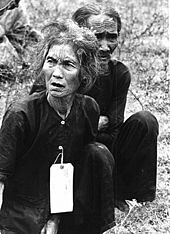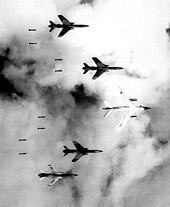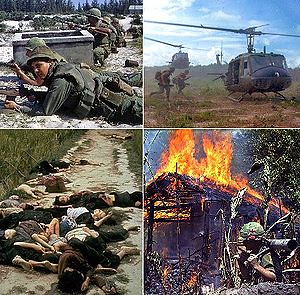
The compellation of short stories “The Things They Carried” includes countless situations involving the strong emotional subject matter associated with the Vietnam War. Author and ex- soldier Tim O’Brien, uses numerous characters throughout his tales as a way of reflecting the multiple processes and questions that war creates. When reading these narratives and accounts of combat like in the short stories “Speaking of Courage “and “How to Tell a True War Story”, one question is evoked from O’Brien time and again: How can a true war story be told? Like all stories, it can only be told by integrating actual events with personal experience. Facts alone do not portray a true story: “A true war story, if truly told, makes the stomach believe (O’Brien 78). Tim O’Brien’s tales truly captivate the mind convince the stomach. His ability to take his readers into another space with his figurative and colorful descriptions make it easy to feel and understand what O’Brien has to share.

The combination of informational fine points and actual gut feelings in these stories lead to O’Brien’s proverbial and greater picture. They feed and balance one another. Their marriage becomes an intellectual legacy created by this narrator, which is intended to outlive only perfect details or emotional vagaries: “Stories are for eternity, when memory is erased, when there is nothing to remember except the story “(O’Brien 38). This type of truth- form is expressed through his many characters and stories in attempt to share his own feelings in the most genuine way he knows how.
According to an article written by Adam Frost, O’Brien felt uneasy about being drafted into the Vietnam War: “After a brief tussle with his conscience (O'Brien was opposed to the war), he agreed to be conscripted. Later he described the decision as surreal: 'I was walking around in a dream and repressing it all, thinking something would save my ass. Even getting on the plane for boot camp, I couldn't believe any of it was happening to me…” (Frost n.p). In the narrative “Speaking of Courage”, character Norman Bowker lives in a dreamlike place when he returns home from the Vietnam War “Clockwise, as if in orbit, he took the Chevy on another seven-mile turn around the lake” (O’Brien 139). Bowker engages in spacey internal dialogue while repeatedly driving in literal and introspective circles “He wished he could’ve explained some of this. How he had been braver than he ever thought possible, but how he had not been so brave as he wanted to be” (O’Brien 153). O’Brien’s own internal struggles after the war gradually creep from young Bowker’s character. This young man is now re-evaluating his own self-worth and definition of bravery based on others notions and his post-war experiences.


Norman Bowker’s recent and unsuccessful attempt to save a fellow soldiers from dying in a “shithole” is haunting and paralleling O’Brien’s feelings and ideas of isolation and courage: “A good war story, he thought, but it was not a war for stories, nor for talk of valor, and nobody in town wanted to know about that terrible stink” (O’Brien 150). The line between the author and narrator becomes rather hazy as O’Brien shows his feelings of hesitation around sharing a war experience through Bowker. Confusion and awkwardness linger during Norman Bowker’s lonely drive eloquently expressing O’Brien’s own reservations and feelings of uncertainty with his courage and tales. Tim O’Brien’s text intentionally compels its reader to rely on gut feeling due to their character and factual ambiguities: “There was no Norman Bowker. The point being, among others, that in fiction, we not only transform reality, we sort of invent our own lives, invent our histories, our autobiographies” (qtd. in Naparsteck 8). O’Brien’s writings are about the journey, not the destination. His time in Vietnam is still very much alive and his stories are his forum for manipulation and continual examination. He is still deciding his own stories while putting them on paper. They remain fluid and a form of remedy for his heart. Norman Bowker is his medium for this process in his story “Speaking of Courage”.

O’Brien adds a feeling of surrealism and freedom by using fictional qualities in his works “The best literature is explorative; It’s searching for answers and never finding them” (qtd. in Naparsteck 5). Literal points will only divert from what characters like Bowker represent. O’Brien’s fiction to leaves space for the continuous questioning and self-discovery “If you knew what courage is, if you had a really wonderful, philosophical explication; you wouldn’t write fiction. Fiction is a way of testing hypotheses, and not defining, and so I think that more than anything the work is a way of me saying, yes, courage is clearly important in this character’s life; he thinks about its importance in circumstances; the work is a way of searching for courage, finding out what it is” (qtd. in Naparsteck 5). Writing is the tool Tim O’Brien uses to dance with his own ideas of courage and mystery; this is also his way of sharing experience without putting rigid rules around his experience.
O’Brien’s introversion and desires to escape a harsh world, trace back to his early times in the 1940’s. His mother, an elementary teacher, helped to educate him on the importance of skillful writing. His father, who sold insurance, also influenced him to be very well read. These early inclinations help him to be the competent writer he is today. Sadly, his childhood environment also creates Tim’s more distant and surreal ties in his art: “But to escape the pain of his alcoholic father's dinnertime taunts, the adolescent O'Brien sought solace in performing magic” (Herzog n.p). “The Things They Carried” clutches this magical quality found only by imagination. O’Brien’s art ties the past with the present and future. This wondrous science truly appeals to the educated adult as much as the inner child. O’Brien recognizes that practical facts alone do not portray a true story; “A true war story, if truly told, makes the stomach believe (O’Brien 78). O’Brien has been criticized time and again for his plays with fact and fiction. From an early age this kind of mentality was ingrained into his personality. Reading many books and playing with trickeries of the mind such as magic, influence how Tim O’Brien perceives the world today. Participating in a war full of surrealistic moments further enhanced this warped lens toward the world. Those with the ability to appreciate O’Brien’s attempts to share countless experiences in this unordinary way, realize that not only tangible information tells a real story.
Stories in “The Things They Carried” represent all the concrete and intangible hopes and troubles Tim O’Brien and his fellow soldiers carried. The burden of surviving a tragic war is just as heavy as it was living through one. The memories O’Brien will afflict him as long as he is alive. He knows he cannot escape this and attempts to gain insight through his writing. O’Brien is able to give a well-rounded perspective of his thoughts by including humor with his grim details of combat. The dualities O’Brien creates between fact and emotion, and imagination with actual memory signifies his own battle with uncertainty, while giving both ends of the spectrum consideration and respect. These qualities make him a respectable contemporary writer and he represents past generations with dignity and sincerity.
O’Brien’s heartfelt uncertainties ultimately reveal the purpose of his texts. The only definite conclusion that can be agreed upon by everyone is that War is, has, and will always feel indefinite. Tim O’Brien’s writings convince the stomach and the intellect. Each is needed to ingest his stories fully. Using their powerful combination helps O’Brien and his audience to interpret and absorb the truth and multiple processes endured by soldiers in a gut-wrenching war.
Works Cited: O’Brien, Tim. “The Things They Carried.” New York: Mariner Books, 2009.Print.
No comments:
Post a Comment